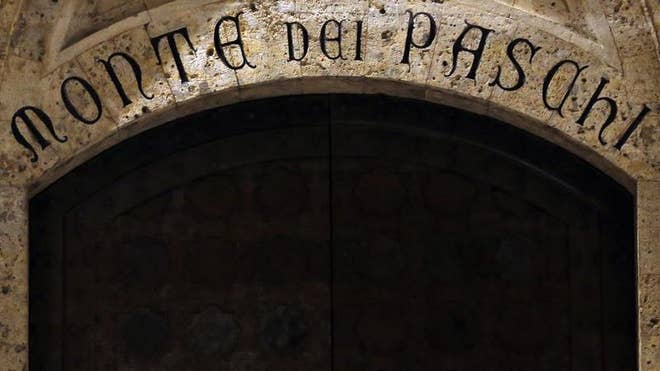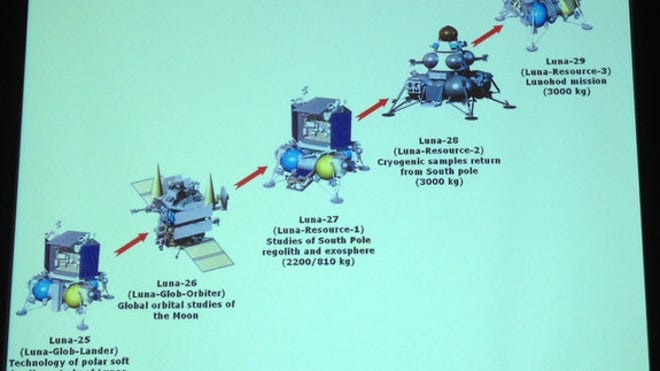11/04/2013 - SERBIA
Suspect in Serbia mass shooting dies
A Serbian war veteran suspected of shooting dead 13 relatives and neighbours in a quiet town near the capital Belgrade earlier this week before turning the gun on himself, died in a hospital on Thursday from his injuries.
A Serbian war veteran who killed 13 relatives and neighbours in a dawn rampage in a Serbian village this week, before turning the gun on himself, died in hospital on Thursday.
Belgrade’s Emergency Hospital said 60-year-old Ljubisa Bogdanovic died on Thursday afternoon and that his wife, whom he shot in the head and neck, was “in stable condition and recovering from surgery.”
Serbs were stunned by the massacre on Tuesday in a sleepy rural region some 40 km (25 miles) southwest of the capital, Belgrade. Six men, six women and a 2-year child died, the gunman’s mother and son among them.
The motive is not known. Police said Bogdanovic had fought in Croatia in 1991 during the Yugoslav wars and that he and his son had both lost their jobs last year. Reports said Bogdanovic’s father and uncle had killed themselves several years ago.
Shocked villagers initially spoke of Bogdanovic as a friendly, popular member of the community. But on Thursday, several Serbian newspapers quoted relatives and neighbours as saying he had a history of domestic violence.
Bogdanovic had a permit for the 9-mm, semi-automatic pistol he used.
Gun culture is deeply rooted in Serbia, which is still recovering from the collapse of federal Yugoslavia in the 1990s. Police estimate there are more than 1 million licensed weapons in the homes of Serbia’s 7.3 million people. Many more are held illegally.
In 2007, a man armed with a shotgun killed nine people and wounded two in the eastern Serbian village of Jabukovac and in 2002, in the southern town of Leskovac, a man shot dead seven people.
SIENA/MILAN – Italian prosecutors took steps in Germany and Britain on Wednesday to carry out the seizure of up to 1.95 billion euros ($2.6 billion) of assets from Japan's Nomura <8604.T>, which they say is needed to halt further losses from Italy's Monte dei Paschi bank.
Prosecutors in Italy accuse Japan's largest broker of colluding with former managers of Monte dei Paschi, the world's oldest bank, to set up huge hidden bets on Italian government bonds that helped drive the Italian bank close to collapse.
Nomura says it has done nothing wrong. It said on Tuesday none of its assets had been seized in connection with the Monte dei Paschi probe and it would take all appropriate measures to protect its position.
Shares in Nomura, Japan's biggest brokerage, closed down 2.33 percent on Wednesday amid uncertainty over the impact of the Monte dei Paschi scandal. The Italian bank, which has shed nearly a third of its value in the past 12 months, was trading 0.41 percent higher.
The seizure order was aimed at preventing Monte dei Paschi from sending more cash to Nomura as collateral for the "Alexandria" trade, a huge bet on Italian government debt made more costly by an interest rate swap that forces the Italian bank to take losses when rates are lower than expected.
The funds are held in accounts outside Italy, which means the Siena-based prosecutors are trying to seize the money through "Target 2", the interbank payment system that links European banks through the central banks of individual countries that use the euro, a judicial source told Reuters on Wednesday.
The source said the Bank of Italy had contacted the Bundesbank to block a Nomura account held with Citigroup in Frankfurt, but had not yet heard back from the German central bank.
Prosecutors are also seeking to seize funds held on behalf of Nomura in London accounts with Citigroup and Bank of America . Neither Citigroup nor Bank of America are part of the investigation. Citigroup declined to comment. Bank of America did not return a call seeking comment.
The prosecutors' seizure warrant, seen by Reuters, says that between Feb 19 and April 5, Monte dei Paschi deposited more than 370 million euros with Nomura as collateral to help cover mounting losses. In total, it had 1.87 billion euros on deposit.
"This requires urgently stemming this landslide of money towards Nomura that is increasing by the day," the prosecutors said in the document, explaining why they did not wait for a judge to authorize the seizure, made public on Tuesday.
The prosecutors' warrant says that by freezing the derivative contract, they will be able to block all related payments.
Part of the 1.95 billion euros figure is some 88 million in "hidden" fees the prosecutors and Monte dei Paschi say Nomura received from the deal.
PARTIAL NATIONALISATION
Monte dei Paschi, Italy's third-largest bank, received a state bailout of 4 billion euros in February to plug a capital shortfall exacerbated by derivative deals. It faces the prospect of partial nationalization from next year.
Italian prosecutors are investigating Nomura's former top executive in Europe, Sadeq Sayeed, and its managing director in fixed income sales for the Europe, Middle East and Africa region, Raffaele Ricci, over allegations of aggravated fraud and usury.
Sayeed, who left Nomura in March 2010, denied the allegations. Ricci did not return calls for comment.
The seizure warrant said Nomura "took advantage of Monte dei Paschi's economic and financial difficulties" when it negotiated a restructuring of the Alexandria deal in 2009.
The prosecutors allege that the Japanese bank colluded with former managers at the Italian bank to conceal losses and engineered "disproportionate and abnormal" contract clauses at the expense of the Tuscan lender.
"All this determined, is determining now and will continue to determine in the future...huge negative consequences for the liquidity and operative functioning of Monte dei Paschi," the document said.
SWELLING LOSS
The Alexandria trade involved the purchase by Monte dei Paschi of Italian government bonds for 3 billion euros financed through a long-term repurchase agreement with Nomura.
The trade also involved an interest rate swap that according to the prosecutors ensured Nomura effectively received a 5 percent coupon on the government bonds, while the interest rate received by Monte dei Paschi was 0.34 percent.
The transaction had an initial negative fair value of 308 million euros for Monte dei Paschi that was not revealed in the bank's financial accounts, including "hidden" fees for Nomura, the prosecutors said.
As the decline in the bonds' value during the euro zone debt crisis swelled Monte dei Paschi's losses on the trade, the Tuscan lender was forced to deposit as much as 2.45 billion euros as collateral in mid-May 2012, they said.
A judicial source told Reuters the prosecutors' seizure order had effectively frozen the Alexandria transaction and all related payments had been suspended. A judge now has around 10 days to decide whether to ratify the prosecutors' move.
Monte dei Paschi booked a pretax loss of 730 million euros in 2012 linked to the Alexandria trade and a similar deal with Deutsche Bank known as Santorini.
When asked whether the prosecutors could also take steps against Deutsche Bank, the judicial source said their examination of the Alexandria trade was at a more advanced stage than that of Santorini but that they could consider such a move. ($1 = 0.7616 euros)





